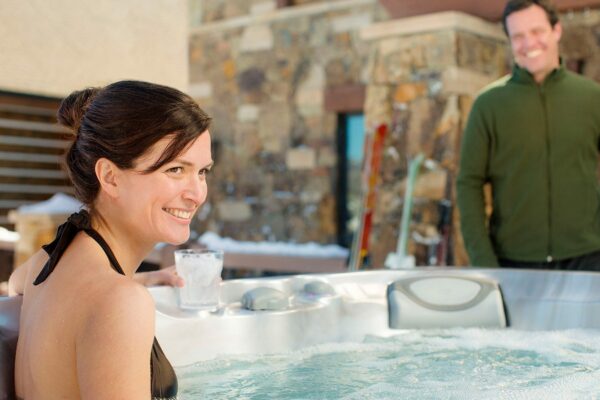Maintaining optimal water quality is a crucial aspect of spa ownership, ensuring a safe and enjoyable experience for users. While various factors contribute to water quality, the role of heat pumps in influencing chemical balance and pH levels is often overlooked. This article delves into the impact of spa heat pumps on spa water quality, exploring how these heating systems can affect the chemical composition and pH balance of your spa water.
Temperature’s Influence on Chemical Reactions:
The temperature of spa water, regulated by heat pumps, plays a significant role in the efficiency of chemical reactions. Warmer water tends to accelerate chemical processes, impacting the effectiveness of water treatment chemicals such as sanitisers and disinfectants. Spa owners need to be aware of this relationship to ensure that their chemical treatments remain effective, especially during periods of increased water temperature.
pH Levels and Heat Pump Operation:
pH levels are a critical component of spa water quality, influencing the effectiveness of sanitisers and the overall comfort of users. Heat pumps can affect pH levels in two main ways. Firstly, the accelerated chemical reactions due to higher water temperatures may alter the pH balance. Secondly, the heat pump itself can introduce elements that impact pH, such as metals, from the heat exchanger. Regular monitoring and adjustment of pH levels become crucial to counteract these potential shifts.
Chemical Usage and Heat Pump Efficiency:
The efficiency of heat pumps in maintaining a consistent water temperature directly impacts the consumption of water treatment chemicals. Inefficient heating systems may require longer operation times, resulting in more significant variations in water chemistry. This, in turn, can lead to higher chemical usage as spa owners attempt to compensate for fluctuating conditions. Investing in an energy-efficient heat pump can contribute to stable water quality and reduced chemical consumption.
Mitigating Impacts on Water Quality:
To ensure that heat pumps positively contribute to spa water quality, spa owners can adopt proactive measures. Regular water testing and analysis are essential for monitoring pH levels, sanitiser concentrations, and overall water balance. Additionally, choosing high-quality water treatment chemicals designed for spa use can enhance the effectiveness of the treatment process. Maintenance of the heat pump itself, including periodic checks for corrosion and scaling, is crucial to prevent unwanted contaminants from entering the water.
Balancing Act: Temperature and Water Quality:
Achieving a harmonious balance between the desired water temperature and optimal water quality requires a thoughtful approach. Spa owners should consider the specific requirements of their water treatment chemicals, the efficiency of their heat pump, and the potential impact of external factors, such as weather conditions. Regular communication with spa professionals and adherence to recommended guidelines can strike the right balance, ensuring a safe and enjoyable spa experience.
Energy Efficiency and Environmental Impact:
Energy-efficient heat pumps not only contribute to stable water quality but also have a positive impact on the environment. By choosing models with high energy efficiency, spa owners can reduce their carbon footprint and contribute to sustainable practices. Lower energy consumption also translates to reduced operating costs, making it a win-win situation for both the environment and the pocket.
Conclusion:
While spa heat pumps contribute significantly to the comfort of spa users by maintaining water temperature, their influence on water quality cannot be ignored. Understanding the interplay between heat pumps, chemical reactions, and pH levels is crucial for spa owners seeking to create a safe and inviting environment. By adopting proactive measures, monitoring water quality regularly, and investing in efficient heating systems, spa enthusiasts can enjoy the therapeutic benefits of their spa while ensuring the longevity of their equipment and the overall well-being of the water within.










